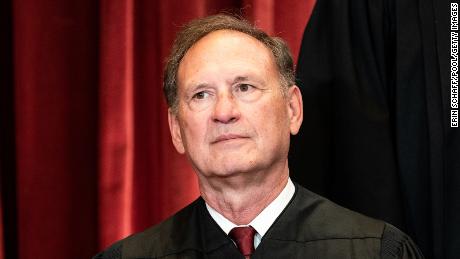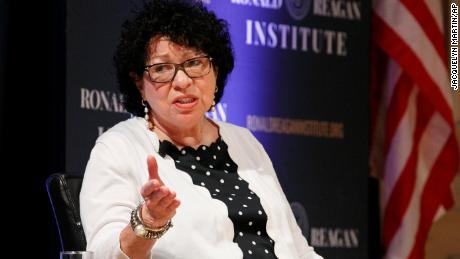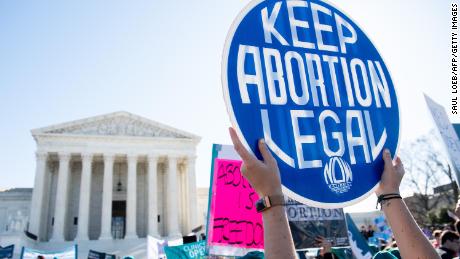(CNN)Justice Samuel Alito on Thursday rejected criticism that the Supreme Court has improperly handled some of the cases that come to it as a part of its emergency docket without the benefit of a full briefing schedule and oral arguments.
Alito said the goal of his lecture at the University of Notre Dame was to "dispel some imaginary shadows" and push back on a notion that he claimed was put forward recently by the media and those in the political sphere that the court was acting in a way, he said, that was "sneaky or dangerous."
He said the recent criticism was geared to suggest "that a dangerous cabal is deciding important issues in a novel, secretive, improper way, in the middle of the night, hidden from public view."
Alito's speech -- almost an hour long and coming on the eve of a new term -- marked a rare instance of a Supreme Court justice lashing out not only at the media and the political branches, but even at the sentiments that had been expressed by one of his own colleagues.
Alito called the criticism "very misleading," adding that "there is absolutely nothing new about emergency applications." The justice then launched into a 10-point rebuttal directed specifically at times at the media and some political actors, defending the court's practices of late.
He noted the complications surrounding the emergency docket -- often referred to as the "shadow docket" and said that the justices do "the best we can" under the time constraints imposed by the situation.
Alito acknowledged that the court has had to resort to the emergency docket more in recent years and said that was due to a series of factors, including that during the Trump administration, "a number of the President's important initiatives were enjoined by a district court judge." He also attributed the recent increase to the challenges related to restrictions put in place to combat Covid.
But he defended the factors the court uses to consider the petitions, stressing that the justices weigh the harms claimed by the parties and the probable outcome of the case.
Alito spoke briefly about several issues that had come to the court on the emergency docket in recent months, including those related to Covid restrictions, the Biden administration's eviction moratorium as well as a controversial order from earlier this month that allowed a Texas abortion law that bars most abortions after six weeks of pregnancy to go into effect.
That order, issued on September 1, caused a firestorm among supporters of abortion rights, effectively barring all abortions in the second-largest state.
Abortion clinics had asked the justices to block the law while the appeals process played out, and the court declined to do so. Chief Justice John Roberts joined the liberal justices in dissent.
Alito did not mention that in her dissent at the time, Justice Elena Kagan actually did take the opportunity to criticize the majority and the court's use of the emergency docket.
She noted that the law was written to block Texas officials from enforcing it, and instead allows anyone to bring civil suit against an individual that may have helped someone obtain the procedure.
"Without full briefing or argument, and after less than 72 hours' thought, this Court greenlights the operation of Texas's patently unconstitutional law banning most abortions," Kagan said.
She said the court's ruling illustrated how far the Court's 'shadow docket ' decisions may depart form "the usual principles of appellate process."
She noted the ruling was of "great consequence" but that it had only been "hastily" considered by the court. She said the majority barely bothered to explain its conclusion "that a challenge to an obviously unconstitutional enforcement scheme is unlikely to prevail."
"In all these ways, the majority's decision is emblematic of too much of this Court's shadow docket decisionmaking -- which every day becomes more unreasoned, inconsistent, and impossible to defend, " she said.
In concluding his speech, Alito said he wasn't suggesting the process was perfect, but that the "political talk" about the shadow docket "feeds unprecedented efforts to intimidate the court or damage it as an independent institution."
He said he was going to take advice in a book written by Justice Stephen Breyer recently to just "do the job."
"And I'm confident that is what the court will do in the upcoming term," Alito concluded.







